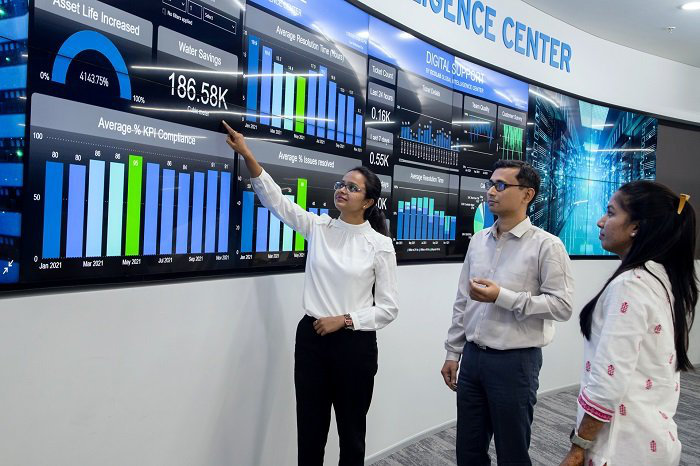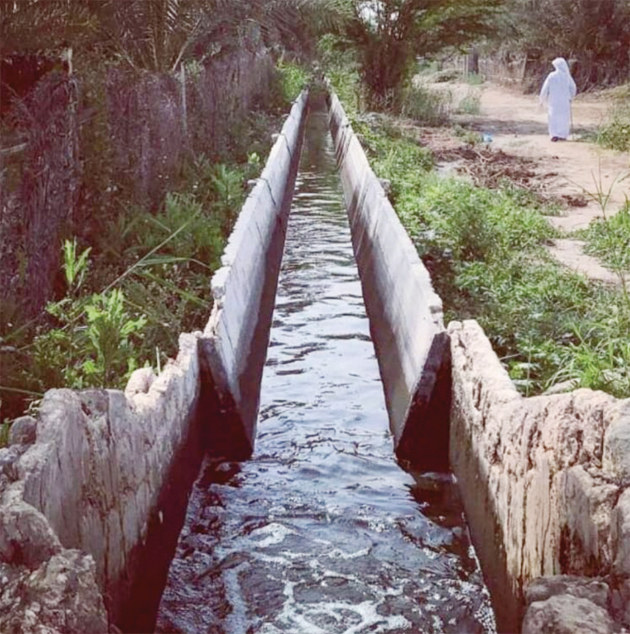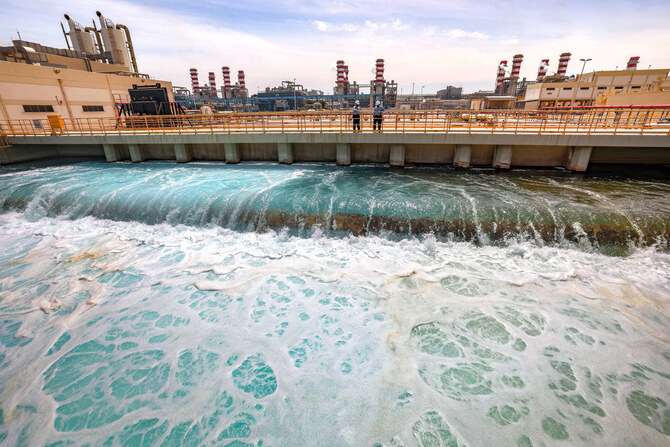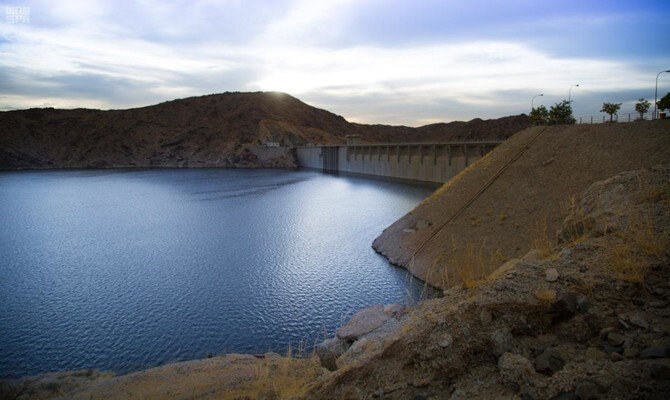RIYADH: Water scarcity is a pressing issue in Saudi Arabia, significantly impacting the country’s socio-economic development as well as its environmental sustainability.
As one of the hottest and driest regions in the world, the Kingdom faces many challenges owing to its limited natural freshwater sources and high rates of evaporation.
These harsh realities have forced the country to rely on limited groundwater and desalination plants, where 75 percent of the country’s water supply comes from.

However, the nature of the desalination process raises concerns about environmental sustainability and carbon emissions due to the amount of energy used by these technologies.
In addition, the over-extraction of groundwater for agricultural and domestic use could exhaust natural aquifers and deteriorate water quality.
This realization has pushed officials to explore solutions to develop the water sector in order to meet the needs of the Kingdom’s growing population.
Opinion
This section contains relevant reference points, placed in (Opinion field)
Saudi Arabia’s Vision 2030 reform agenda emphasizes green development, and sustainable water sources are a key aspect of the plan.
To achieve this objective, the Kingdom is collaborating with foreign companies including the US firm Ecolab to mitigate the severity of water loss.
Christophe Beck, chairman and CEO of Ecolab, outlined some of the company’s strategies to preserve water while reducing energy usage.
“In 2024, we helped preserve enough water for 800 million people, and we are on the path to 1 billion by 2030,” Beck told Arab News.
“We have built our capabilities around the world because of the science we have at our disposal. We have 3,000 people in research and development and digital technology.

Ecolab has been operating in Saudi Arabia for 47 years, collaborating with local firms in managing water supplies, combating potential pollutants and infections, and on human and natural resource protection. (Supplied)

Ecolab employs around 3,000 people in research and development and digital technology to run its operations in 40 different industries across 172 countries. (Supplied)
Ecolab operates in 40 different industries across 172 countries, managing water supplies, combating potential pollutants and infections, and focusing on human and natural resource protection.
The company has been operating in Saudi Arabia for 47 years, collaborating with local firms such as Saudi Aramco, SABIC, and Almarai.
“This country has a lot of natural resources and a lot of ambition. But one thing is missing — water. There are no lakes, no rivers, but there is a lot of sea around us. However, this is not freshwater. That’s a big challenge,” said Beck.

In the oases of Al-Ahsa in Saudi Arabia’s Eastern Province, scientists have found that traditional farming techniques stretching back centuries helped preserve one of the region’s green gems. (Supplied)
The necessity to preserve freshwater has led the Kingdom to introduce water conservation programs, along with promoting efficient irrigation technologies and enhancing public awareness about water usage.
In addition, the National Water Co. has completed several operations to ensure easy access to fresh water for all in any location within Saudi Arabia, including rural areas.
NWC distributed more than 3.7 billion cubic meters of water during the past year in various regions of the Kingdom and treated more than 2.1 billion cubic meters of wastewater during the same year.
DID YOUKNOW?
• Ecolab operates in 172 countries, including Singapore, Saudi Arabia, South Korea, and Taiwan.
• 10% of animal species rely on freshwater ecosystems, according to Nature Conservancy Canada.
• Two-thirds of the world’s population experiences water shortages at least once a year, according to WWF.
However, achieving water security will require a holistic approach that integrates technology, media, and community engagement.
“Awareness helps, as does realizing that no one can solve it alone,” said Beck.
“When I think about Saudi Arabia, I think we have all we need. The natural resources, the industries, the means, and the ambition. But we don’t have water, and we have too few water experts who know how to reuse or recycle water to power the future industries of the Kingdom.
“What I hope to accomplish in Saudi Arabia, and again, we’ve been here for 47 years, is really thinking in the long term, to turn Saudi Arabia into an example of a country that can grow without using more water at the same time.

General view of the Ras al-Khair water desalination plant, owned by the Saudi government's Saline Water Conversion Corporation, along the Gulf coast in eastern Saudi Arabia. (AFP)
“And if Saudi Arabia can do it, many countries around the region can do it, and around the world as well.”
Addressing water scarcity is crucial for ensuring the long-term viability of Saudi Arabia’s economy and overall quality of life.
Without significant and immediate action, the challenges associated with water scarcity and with the increasing heat conditions and drought worldwide, are likely going to intensify not only for Saudi Arabia but for several other countries in the region in the coming years.


















